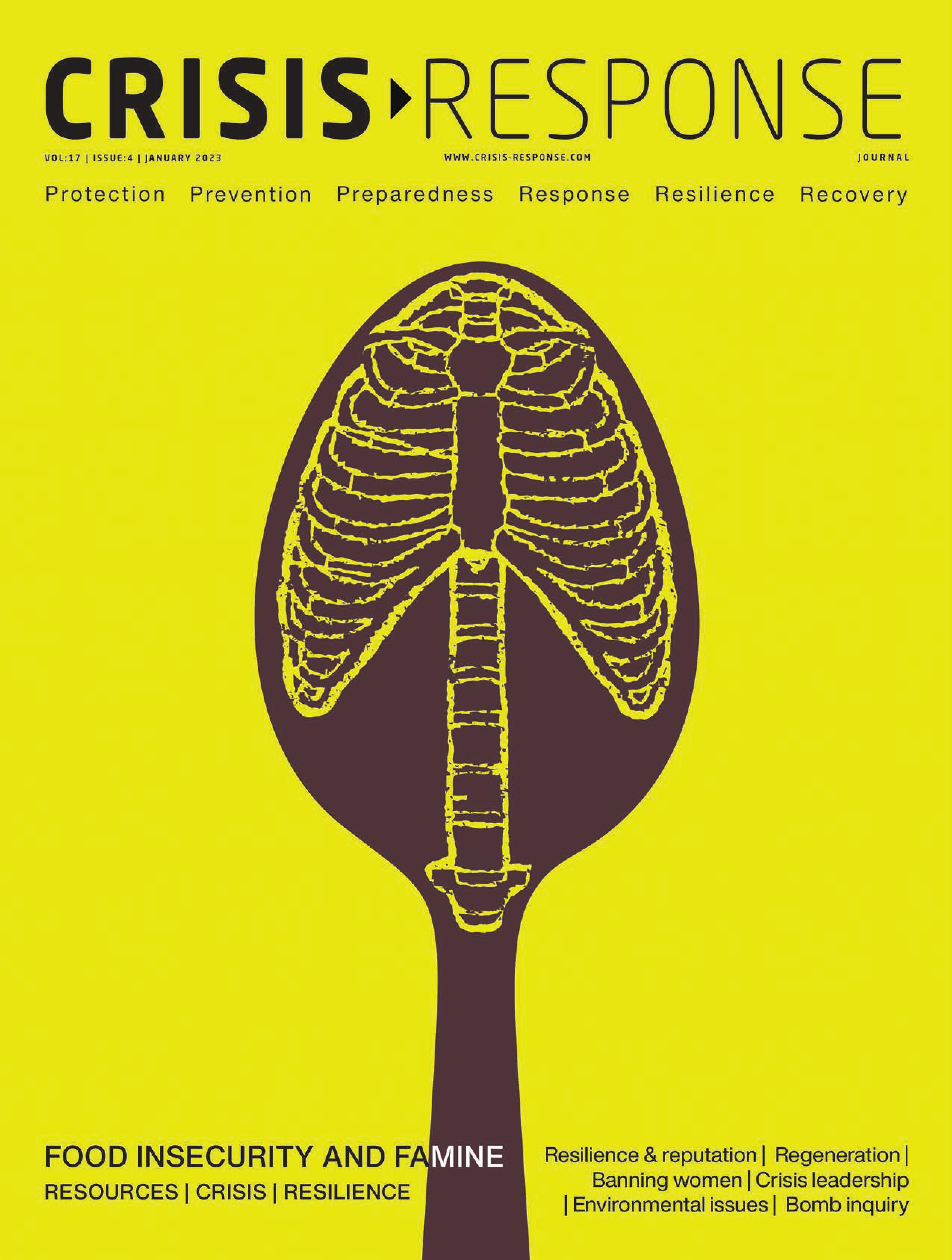CRJ 17:4 Out now!
 This edition explores resource insecurity, in particular food insecurity and famine, around the world. Hard copies will be mailed out soon and all subscribers can log in and read the digital edition through the CRJ website.
This edition explores resource insecurity, in particular food insecurity and famine, around the world. Hard copies will be mailed out soon and all subscribers can log in and read the digital edition through the CRJ website.
This issue will take a deeper look at food insecurity and famine, under the umbrella of a larger resource insecurity theme. Also included are insights into resilience and reputation, crisis leadership and more.
Under resource insecurity, Jacob Kurtzer and Sana Vaidya examine the current food crisis in Afghanistan. Luavut Zahid follows up with a look into the Taliban ban on women aid workers and how it is expected to impact the food supplies.
Omanjana Goswami looks at the Global North, specifically food insecurity in the US. Meanwhile Dr Christine Jessup explores the human influence on food supplies.
In her interview with Raouf Mazou, Assistant High Commissioner for Operations at UNHCR Luavut Zahid takes a look at global food insecurity and the challenges making the situation worse.
Ekaterina Kostioukhina expands the scope of the resource insecurity discussion and asks if space is the next frontier.
Kalrav Joshi discusses climate financing and reparations in light of COP27. Tamara Toles O'Laughlin examines the flip side, taking into account the corporations responsible for climate-related damage.
Several of our authors examined environment and hazards, with Haseeb Md Irfanullah looking at response to the Savar and Sitakunda tragedies in Bangladesh. Bill Peterson examines the hurricane season in the US, and Matt Minshall explores the water management crisis.
Covid-19 seems like it's over but the reality is that the pandemic hasn't really left us. Regina Phelps takes a look at long-term societal disruptions caused by pandemic events.
Taking a look at solutions to climate change related food insecurity, Arlene Barclay examines regenerative agriculture. Bryan Fried offers a different perspective with vertical farming. Meanwhile, Jean-Michel Grand takes a look at how his organisation has been using floods to grow rice in Sudan.
Laura Aumeer examines how conflict and climate collide, and what some communities are doing to push back. Robert Hall dissects the idea of a 'permacrisis' and how to get people together for meaningful change.
Meanwhile, Emma Dodgson tackles the subject of disaster management with a human touch. Beverley Griffiths continues her series with her latest on a living framework for ethics.
Amy Leete explores the EECC and it's implications for emergency communication. Roger Gomm takes a deeper look at the Manchester Arena Volume II.
Tony Jaques takes a look at a PR campaign gone wrong, tackling the subject of managing a reputational debacle. Andy Blackwell similarly discusses managing risk and reputation at a time of crisis. Meanwhile Andy Marshall discusses the need to find opportunity out of crises.
Lyndon Bird takes a look at the DRI International 2022 Trends report. Emily Hough reviews two stellar books this edition, Freedom to Think, the long struggle to Liberate our Minds by Susie Allegre and Navigating Beyond Crisis by our very own Thomas Lahnthaler.
David Wales discusses the need for future-ready responses to crisis management. While Eric McNulty lists the three questions leaders must ask themselves for 2023.
The Crisis Response Journal is available to subscribers only – we have a range of subscription rates to suit all needs. Click here for more details or contact us at hello@crisis-response.com – we would love to hear from you!